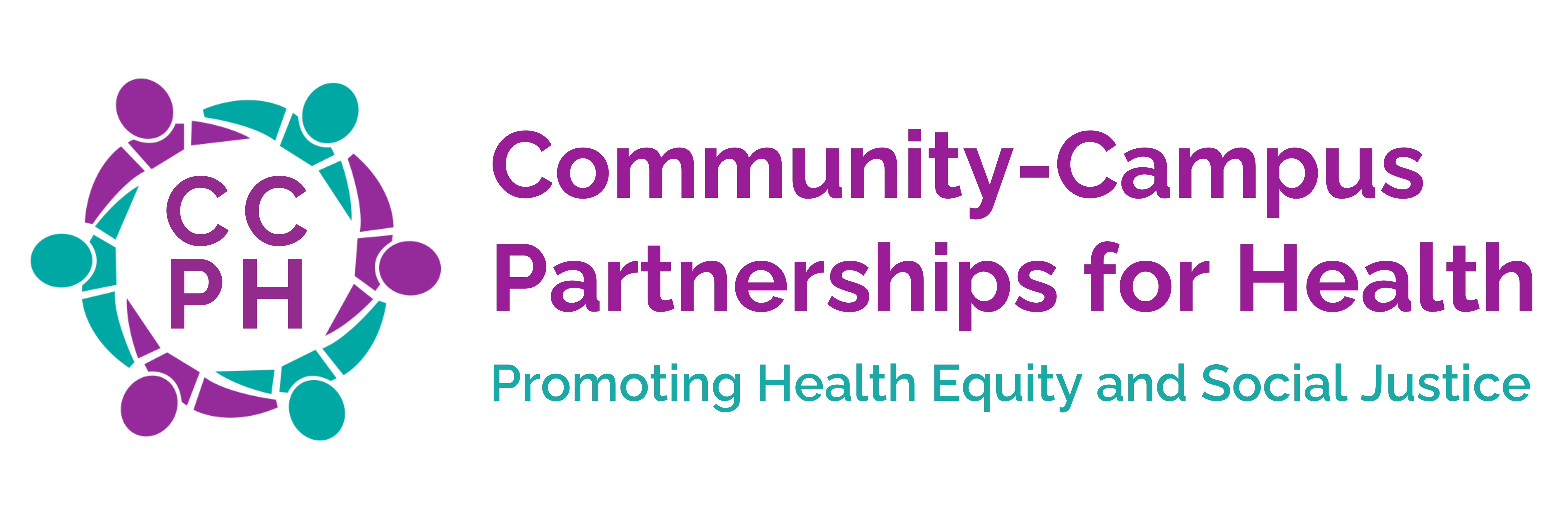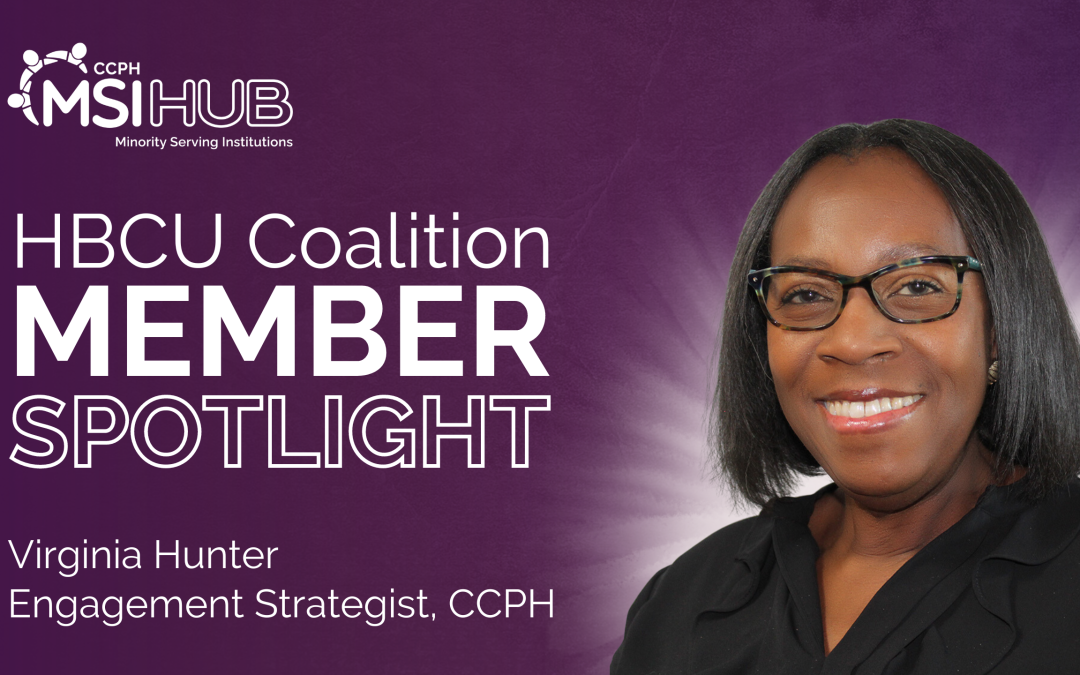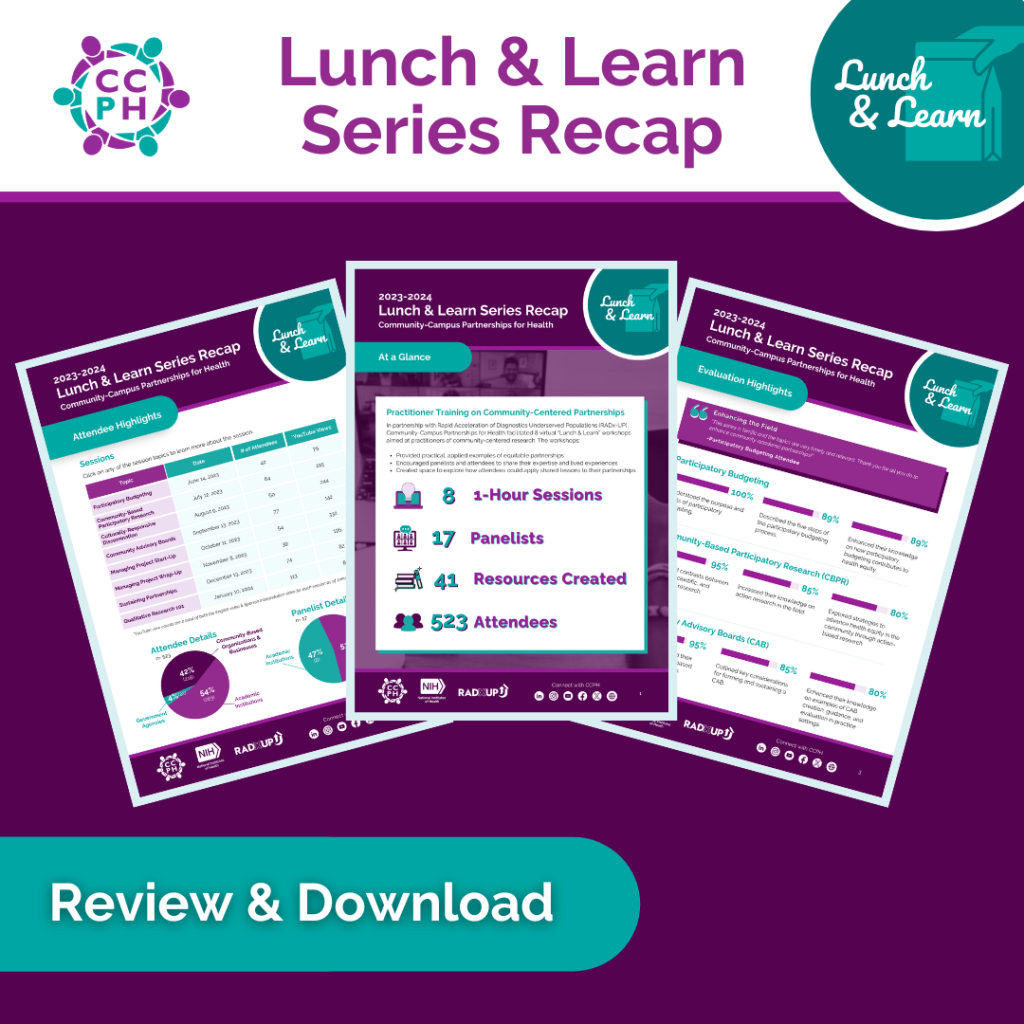Community-Campus Partnerships for Health (CCPH), in partnership with RTI International, is utilizing our diverse network and partnerships with college and university affiliates to increase the engagement of Historically Black College and University (HBCU) students, faculty, staff, and researchers in the All of Us Researcher Academy and use of the All of Us Researcher Workbench. We recently sat down for a conversation with our Engagement Strategist, Virginia Hunter, whose work with CCPH helps increase the visibility of the program at HBCUs.
As an alumna of an HBCU with deep roots in the community, Virginia shares her personal connection to HBCUs, her hopes for the All of Us Research Program, and why it’s important. Continue reading to learn more.
To start, could you talk a bit about your personal history and connection to HBCUs?
I’m a third-generation HBCU graduate. My parents both have graduate degrees from North Carolina A&T State University, and I attended Central State University in Wilberforce, Ohio. Central State was carved off from Wilberforce University, the first HBCU established by Black people in the country. My children make up the 4th generation of HBCU graduates in the family. They attended Winston-Salem State University and Hampton University.
How would you describe the role of HBCUs in higher education?
I think we need to go back to why HBCUs were established, which was Black people were not allowed to enroll in predominantly White institutions. This means there was no opportunity for education for Black people. HBCUs were established in the United States early in the 19th century, to provide undergraduate and graduate-level educational opportunities to people of African descent. HBCUs have done the best job of educating Black people because they have a historical focus and commitment to educating Black people. They’re a pipeline for Black professionals, particularly in the medical fields. For instance, Tuskegee University has graduated around 70% of the Black veterinarians in the country. That says a lot about Tuskegee, but it also says a lot about predominantly White institutions. HBCUs are welcoming communities to everyone, where you’re free to learn. I went to a predominantly White high school and didn’t really have a peer set there. I had more hurdles to jump over. But when I got to an HBCU, I was free to learn, blossom, and be me. I did not have to fit in to be seen as an achiever.
Could you tell us about All of Us and the HBCU Road Tour?
The All of Us Researcher Academy is a comprehensive program that provides training and technical assistance for researchers conducting research with the Researcher Workbench, the cloud-based analytics platform where registered researchers can access participant data. The academy also supports peer-to-peer learning and network-building among researchers and students from institutions that are underrepresented in biomedical research.
As part of the Researcher Academy, my colleague Cyreeta Hannah-Boykin, an HBCU graduate of Elizabeth City State University, and I have been leading an initiative called the All of Us HBCU Road Tour. We’ve organized a series of events at different HBCUs designed to recruit more HBCU researchers to use the All of Us database. The events bring awareness to the availability of the All of Us Researcher Workbench database and the resources to support their research available in the Researcher Academy.
HBCUs don’t always have the infrastructure to jump in when a new dataset becomes available. When you look at the National Institutes of Health (NIH) awards, there is a lower percentage of HBCUs applying for and receiving them for a lot of reasons. This project is important because All of Us removes a lot of those access barriers. You don’t have to have the infrastructure of an RI institution, for example, on your campus, to be able to access the Researcher Workbench and conduct research. And then, there’s the Researcher Academy, which can teach you, for example, the languages you need to use to utilize the database. There are some research awards that you already have to be standing on a body of research to even make an application. With All of Us, because it’s easier to access, a junior faculty, for instance, can use it to build a body of research that can take them to larger awards.
Why is it so important to have HBCU researchers using the All of Us data?
You hear a lot about the lack of capacity for HBCUs to do research. With the HBCU Road Tour, we want to change the narrative and talk about the strengths of the HBCUs to do this type of research. Because the fact of the matter is the communities facing barriers to good health outcomes are disproportionately Black and Brown communities. HBCUs are not only centered in these communities, but also have strong relationships that can improve the health of these communities. And HBCU researchers are more likely to research things that directly impact health issues in the communities they are a part of.
What do you hope the long-term impact of the work will be?
My hope is that more HBCU students will be interested in conducting research. My hope is that more social science and bioscience researchers will work collaboratively to find the solutions to improve health. My hope is that this impacts the health of HBCUs and their communities in a huge way. My hope is that more HBCUs become engaged in research.
How can people get involved with All of Us?
Whether you are contributing health information, engaging in research, or supporting the All of Us Research Program as a partner, by taking part in this historic program, you may help us build a better future for health research and care. It is easy to get involved with the All of Us Research Program as a researcher or participant.
Learn more:
- Participation: All of Us is powered by participants. By joining the program, you may help advance the future of health. Find out how you can contribute to All of Us as a participant and how to sign up.
- Opportunities for Researchers: Learn how the All of Us Research Program benefits researchers and how you can access program data online through the Research Hub. As part of a commitment to fostering diversity in health research, the All of Us Researcher Academy supports access to the Researcher Workbench for researchers from groups that are underrepresented in biomedical research.
- Funding and Program Partners: Learn about funding opportunities with the All of Us Research Program and see examples of program partnerships.
—–
Each month, CCPH will shine the spotlight on a member of the MSI Hub community and their important work. We aim to help connect our network and share valuable information and resources with the community. Email us at MSIHub@CCPHealth.org to be featured.


